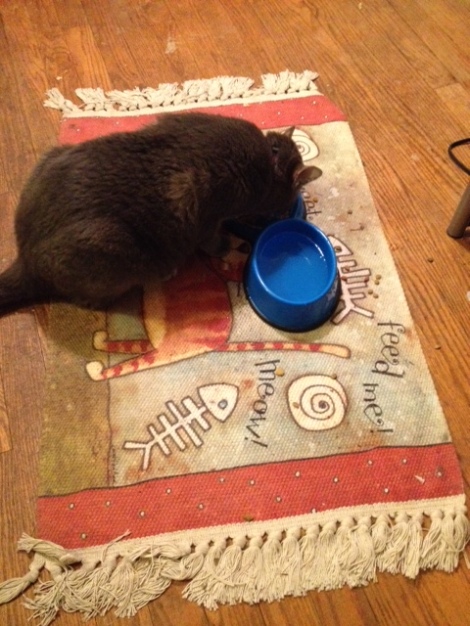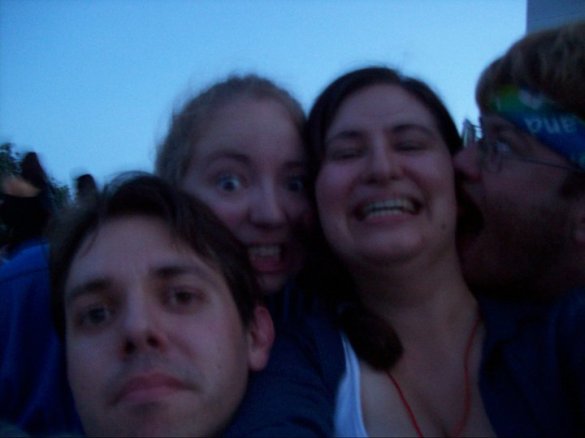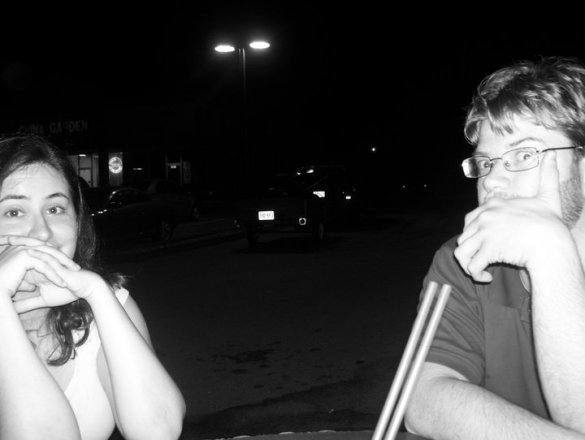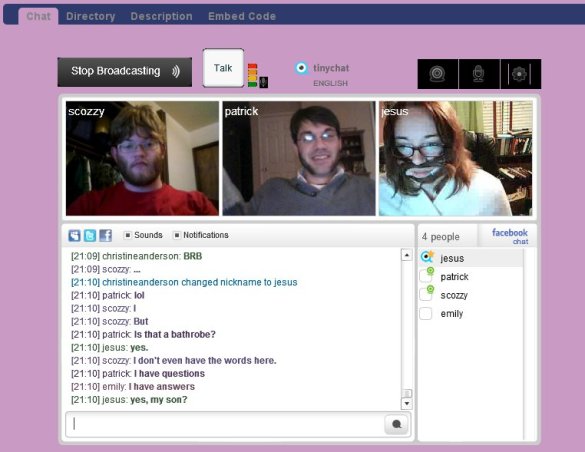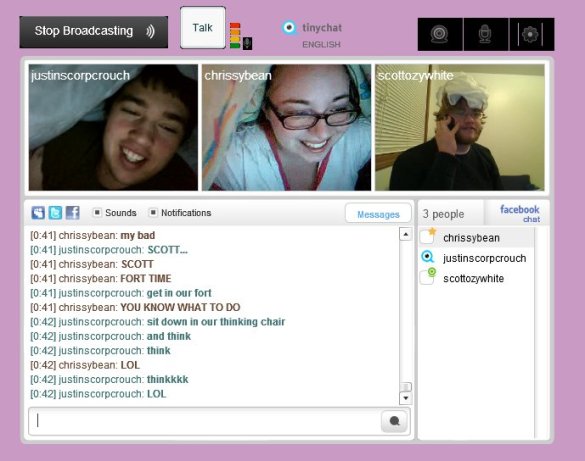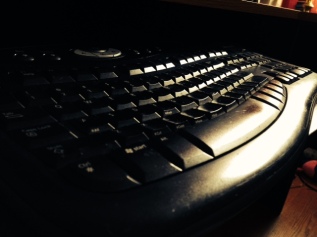Latest Event Updates
There’s a Hole in my Bathroom Ceiling (an analogy from true life)
Today, the plumber came to the apartment that I share with my husband and took what I can only assume was a very large pin to the bubble of paint that was looming over the commode, and liberated a few liters worth of stagnant pipe water, rain run-off, squirrel piss, or some horrifying combination of the three. When I came home from work, there was a sizeable hole in the ceiling of our bathroom.
My husband and I spent several minute staring up at the gaping wound in our bathroom with something of a mixture of exasperation, anger, and gallows humor. How in the world did we get into this mess? We knew that the plumbing in our apartment building is old, that we’ve had a stopped-up bathroom sink for months now, and our shower has always come out at nothing more than a vague sprinkling. There have been paint bubbles filled with water from the upstairs unit before. But this bubble was the size of a basketball. And I had no idea that it was there.
“I thought you told Mary Ann!” was my husband’s excuse to my shriek, “WHY DIDN’T YOU SAY SOMETHING?!”
For months, this issue has been looming above our heads, so close to dropping a very wet and unpleasant surprise right in our laps at any moment. And I had no idea. All the while, my husband assumed that I had had everything under control. It wasn’t until the bubble started to drip on him that he mentioned anything to me, and showed me the problem for the horrifying reality that it was.
I think this happens more often than people would like to admit, especially in relationships. In an ideal relationship, there is a constant give-and-take, a workload that’s balanced and fair. Each participant carries their own weight to support the relationship as a whole. But the reality is, there’s no scorekeeper sitting over your shoulders and holding everyone accountable. It’s all based on the honor system. There are no checks and balances.
That’s why I think that it’s so easy for the relationship to fall out of equilibrium. With everything that a couple has to deal with on a daily basis (employment, chores, social circles, bills, sometimes a lack of employment), keeping the health of the relationship at priority numero uno is difficult. Constant vigilance is a skill that’s best kept for policemen and Aurors-turned-professor. Always being hyper-aware, over-sensitive, is not only stressful, but I think it’s harmful too. Just as no one should take the brunt of the work in a relationship, no one should be the lawmaker either. I spent a lot of my time as an adolescent being acutely aware of every change in my parents’ moods, and how best to please them depending on how mad at me they were, for what crime, and what I could barter to retrieve their happiness. I was a slave to their appeasement, and it took me a very long time to break myself of that habit. If we become too consumed by how we’re being perceived by our partner, I think we fall into this trap of modifying our behavior to suit only their needs, without considering our own, and we tread dangerously close to selling ourselves short.
How long can you stay in a relationship that tends to be lopsided more often than not? What if you’re the person who needs the support most of the time? What happens when you’ve felt like you’ve asked enough of your partner, and that you should start taking care of issues on your own? If you’re not prepared to take on the challenges, then mistakes are going to happen. And that’s a perfectly natural thing to experience, as a young liminal mind trying to establish a grounded footing in the world. It’s easy to make mistakes, but as long as you take them and learn from them, and at least try not to make the mistake the next time, you should progress, if not slowly. But when you’re in a relationship, especially one with staying power, this isn’t the only thing to take into consideration. Your mistakes don’t just have consequences for yourself, they don’t just derail your own life, they can derail your partner’s too. And while everyone should be allowed to make mistakes, it’s important to think of the pressure that’s being put on the relationship.
So where does that leave us? There will always be imbalances in a relationship. Someone is going to be more successful than the other at something in the course of the relationship. And one person is always going to be leaning on the other just a little bit more at any given time. Sometimes, one partner will be progressing in life, and the other will feel like they’re standing still.
And that’s all completely natural, I’m learning. That’s how human relationships go, at least productive ones. The give-and-take may not be as quick as it seems like it should be. Sometimes it takes months, even years. Sometimes you fight for the focus, you fight for the support, you fight to be heard and seen and felt. But what happens when you just assume that everything’s okay? That the other person has control of everything? What happens when you don’t ask, just check, just to make sure? Just to verify that what you’re thinking is true?
You wind up with a hole in the ceiling.
Writing Prompt – Car Troubles
Hey guys! I just posted a writing prompt over at my tumblr that I’d really like to see the responses from, because it makes me giggle to think about. Here it is for my wordpress family:
Writing Prompt – Car Troubles
Your OTP shares a car to get to their respective workplaces. They’re going to be late. GO!
My Cat is a Weird-Ass
I spilled water in her food bowl and she ate it soggy.
Look out, WordPress. I’m back.
Throwback Thursday: Roommates
For this week’s Throwback Thursday, I was going to post one of my Sims stories. Instead, I found myself browsing old Facebook albums from 2011. So many shenanigans, it would be a crime not to share.
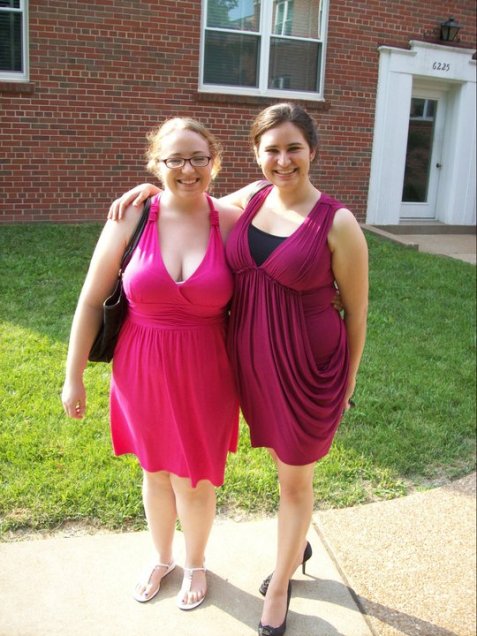
This is my roommate and I, all dressed up and fancy for my 23rd birthday. (I’m the blonde.) Notice, if you will, how much classier this lady is than me. We’re on our way to our favorite Thai place, and now I really want some red curry.
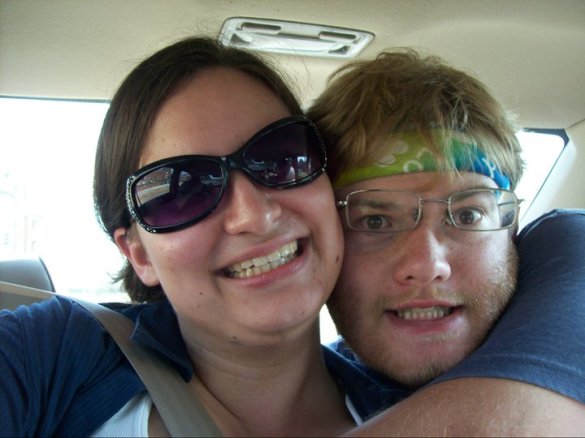
July of that year was interesting. For 4th of July, we went to a local fair, sat in the sun all day listening to good music and eating food that was terrible for us. Unbeknownst to me, I was on a date with my roommate’s fiance’s (pictured above) roommate. I found out a few days later.
I think the heat may have gotten to our brains…
I know the perfect thing to cool us off! Sno-cones! There was a small, privately owned (aren’t they all?) sno-cone stand not too far from our house that we visited almost every night during the summer. It became a way of life.
Sometimes, we would wake up and our chips would be in the fridge.
Sometimes–and this was before we all moved in together–we would talk in a video chatroom. And sometimes I was jesus.
And sometimes we would build forts.
Literally.
This post is Part 1 of a new series called Throwback Thursday. Every Thursday, I’ll share unedited works from the past and sometimes real-life stories too. This is about as real as it gets: my life in all its cringe-worthy glory.
Writing is a Battlefield
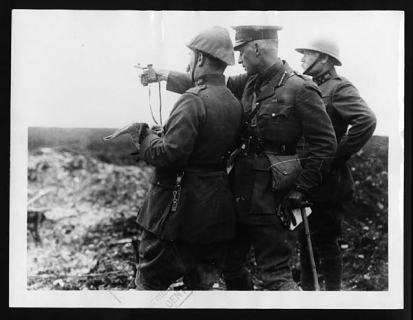
Over the past week, I’ve been thinking about the reasons why Writer’s Block exists, and why it can be so debilitating. Despite the fact that the ideas are there in my head, sometimes the words resist my efforts to wrench them from my mind and set them to a medium. Instead of blindly cursing the muses and slipping into an existential crisis, I was able to identify six causes of blockage, and six inspirational circumstances to match.
6. Fear vs. Adrenaline
This past September, I became enthralled with the idea of screenwriting. I threw myself into researching how to write a script that people would want to see. I came across a book called Script Magic: Subconscious Techniques to Conquer Writer’s Block by Marisa D’Vari. While many of the sections that covered how to write a story in three acts seemed self-explanatory to someone who’s been concocting stories since she could talk (When I was six, I wrote a story called “Christmas in the Jungle”. It was awful.), I found wisdom in D’Vari’s explanation of the two sides of the brain and how their interaction affects the ability to write. She alleged that the left and right sides of the brain served two distinct purposes: the Left being the Editor and the Right being the Dreamer. Writer’s Block occurs when the two sides work simultaneously, clashing against one another in a territorial battle over our work. The Right side of the brain creates a compelling story, but the Left side censors our ideas before they can become fully realized.
When I speak of fear during writing, I’m talking about this Left side of the brain. Reasoning and rational thought tells me that my work will never be perfect. I find myself editing as I write, correcting “mistakes” as I’m still struggling to put half-formed thoughts into words. This stunts my efforts, and prevents ideas that have the potential of becoming great plots from ever seeing the light of day.
At the same time, when the Right side of my brain blesses me with an inkling of an idea, I often find myself filled with excitement. Adrenaline rushes through my veins, and I have to find the nearest pen and paper or keyboard to let the words flow before they disappear. It’s a high, a rush that’s unbelievable. And it’s the reason that I found myself addicted to online roleplaying in my teens and early twenties. Nothing has ever quite compared to the feeling of collaborating with someone else on a story — but let’s save that for another point.
5. Past vs. Improvement

It can be downright painful to read my works from the past. I’m talking so cringe-worthy, I can hardly stand it. And at the time, I can remember thinking that it was so good. I knew for a fact that I had improved, that my writing was worth something. I would never look back and think “What was I thinking??”
Well, if starting this blog has taught me nothing else, I’ve discovered that past me was full of crap. For inspiration, I looked into one of my old Blogspot accounts that had a fictional novel I had been working on. While, yes, I had definitely moved on from my days of Harry Potter fanfiction, Mary Sue characters, and downright laughable sex scenes, my work was nowhere near readable. I thought to myself, how could this happen? How could I have deluded myself into thinking I was such a good writer, and now I’m looking at it five years later, and I want to go back and punch past me in the face? And what if that happens again? I’m 25 years old now, but will I find myself looking back when I’m 35 and laughing at how terrible my writing is now?
Probably. And that’s a good thing, because I’m getting better all the time. The more I write, the more I learn, and the better I become at doing the thing I love most. Looking back at my mistakes can hurt, but it’s absolutely necessary to make forward strides.
4. Criticism vs. Praise

As strange as this may sound, I’m not afraid of receiving constructive criticism. A bad review I can handle. The read pen of a trusted peer is nothing to fear. Being told that a final draft could use another revision is completely okay. But what cripples me in the process of writing…is the voice inside my head. And it’s not my own voice. This voice, this overly critical, nagging wench of an inner monologue has taken many different forms. Depending on the time of my life, and on the interests I have at the time, there’s always an evil spirit that tells me my work isn’t relevant; thats despite my efforts to cover important issues and bring new understanding on something that’s not widely understood, there will always be a problem. Do you know someone who finds the flaws in everything? Do you know that person who’s never entirely happy with something, no matter how progressive it might seem? (Hint: They tend to flock to Tumblr en masse.)
While that voice can be annoying and straight-up depressing at times, there will always be moments of affirmation. And if it’s a sincere affirmation, most of the time it’s unexpected. Because if we fall into the habit of “fishing” for compliments, that voice of criticism will always be at the back of our mind saying that the compliments we receive aren’t genuine. This brings me to my next point.
3. Sugarcoating vs. $$$

It’s pretty much an unspoken rule that your husband, if he’s a good husband, will never tell you that you look fat in that dress, even if you do. And the same goes for friends and family with whom you share your work. Even when asked for honest criticism, I’ve found that the people who care about me on a personal level have a tendency to go easy on me. And this can sometimes be a distraction. When I was in high school, I wrote an entire book that I thought was the bomb-diggity. The premise was simple and unoriginal. I was in the midst of Lord of the Rings fandom, and the book went like this: My sophomore geometry class was summoned via magic spell to replace the main cast of the Lord of the Rings. That was it. I re-wrote Lord of the Rings with my friends as hobbits, elves, and wizards. Not only was it a blatant plagiarism, the writing was crap. But when I asked for my friends’ input, they all loved it — even those whom I’d casted in roles with an untimely death!
This sugarcoating is what has always drawn me to the internet. With anonymity bringing out the rude, the bold, and the trolls, I could count on getting honest feedback for my work. And now, with the availability of blog monetization, I can receive feedback in its most honest form: cold, hard cash. If I write something that appeals to a wide audience, my page views will go up, and money will come in. (Disclaimer: this blog is not currently monetized, so this is hypothetical) If my writing doesn’t appeal, then my audience will be low and the income will grow stagnant. The exception that proves the rule are internet sensations that are so bad/weird/god-awful that they go viral FOR their awfulness. (See: My Immortal, everyone’s favorite Harry Potter Fanfiction Travesty)
2. Unoriginal Ideas vs. the Success of Others
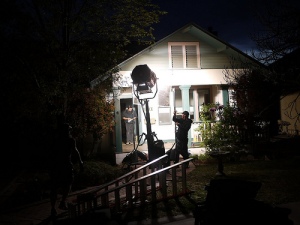
The famous addage, “There’s no such thing as an original thought” plagues every creator on this earth. And while I can appreciate this thought for the nihilistic mantra that it is, if you can’t find an original idea, you won’t succeed in media. This may seem like a dismal prognosis for a creative type, the fact of the matter is this: people fail because they can’t come up with something new. But have faith, all is not yet lost.
To carve your name on the Wall of Fame of popular culture, you don’t necessarily have to think of a new story — that would be literally impossible. To succeed, you must find a new way to explore an existing archetype. One of my favorite past-times is falling down the rabbit hole of TVTropes.org. A massive time-suck, this website is also entirely overwhelming with its vast archive of literally every trope in existence. It’s humbling, seeing a catalog of all the ideas, abstract or concrete, you’ve ever had for a story. But this isn’t new. Storytelling is as old as time, and if you’re trying to swim against the current, you’re going to drown. Instead of trying to shoehorn a new concept into the collective consciousness, effective storytelling comprises of taking an existing concept and putting a unique spin on it. Breaking Bad showrunner Vince Gilligan told an existing story arc of “Good Guy Becomes the Villain”, but he did it with such originality and raw human emotion, that it was a record-shattering success. Try not to think of the existing canon as an enemy you have to defeat, but as an enormous library whose catalog is yours to peruse and sample.
1. Effort/Inconvenience vs. Collaboration/Flow of Ideas
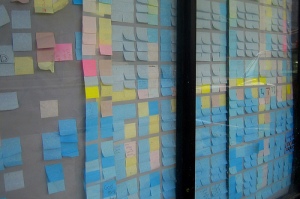
In my day job, I’m required to do several things at once, and control my workflow in a way that all of my tasks are completed by the end of the day, or within 2-3 business days. This has made me very good at time management, and creating several to-do lists in my head before I even get up from my desk. I will arrange my work in a way that I can drop off all of my paperwork at their various destination points throughout the office in one trip, using the route with the least amount of distance to be traveled, and still stop by the break room for coffee on my way back from my desk. I incorporate this into every other thing I do in life: need to pick up kitty litter, chicken for dinner, and drop off season 1 of Parenthood at my parents’ house before Zumba class at 7? I’ll plan my trip home in the most efficient way possible so that I hit all of my targets early and still have some time to veg before my next obligation.
But sometimes, I get lethargic. A wave of apathy will hit right as I’m about to embark on my great list of tasks, and I’ll do a quick mental recalculation, eliminating the tasks that cost the most amount of effort, and cause the least amount of trouble if I don’t complete them on time. I can’t explain why this happens, but I can say that it’s made me a horrible procrastinator. I’ll have everything for the day planned so perfectly, but my own sudden lack of motivation and focus will sabotage all of that, and I’ll wind up surfing the net on my phone or watching Let’s Play videos on Youtube for hours.
Unfortunately, this principle often applies to my writing. I will think of an idea so spectacular, that I’ll abandon real-world plans just to get the chance to sit down alone for some writing time. But then when I begin to draft, I’ll suddenly realize how much effort the story will cost, and the whole thing falls to pieces. I wish I could say that I’d found a cure for this, some sage advice to give for overcoming this tsunami of indifference. But I can’t. I can only say what has worked for me in the past: Collaboration.
When I can’t kick my own butt into gear, sometimes the only option is to find someone else who can do it for me. A writing buddy holds you accountable for the work that you do, or the lack thereof. When I was in my teens and early twenties, I was involved in a one-on-one online roleplay. This writing project spanned several years and almost 10 generations worth of characters. And it gave me a lot of valuable experience with character development. More recently, I’ve started many projects with a college friend of mine. There is something intangibly wonderful about sitting down with another person or a group of people and breaking a story. There’s the initial idle chatter, the sudden spark of a brilliant idea, and then the dam bursts. The ideas seem to flow so easily, cascading one after another until you’ve found yourselves entrenched in what you believe to be literally the best idea in the universe.
Not everyone can work in a collaborative environment. But it’s one of the experiences that has kept me so enthralled with writing for decades now. Of all the interactions I’ve ever had with my friends, family, and acquaintances over the years, the ones that stand out most almost exclusively involve staying up late/riding in a car for hours/sitting barefoot on porches talking for hours about a fictional world that doesn’t yet exist, but will — it will! Because this is the best idea we’ve ever had, and if we don’t write it down in a book, it’ll be a crime! We’ll miss out on millions! The world needs this story!
And if that’s not an inspiring feeling, I don’t know what is.
I Believe in Dreaming
Aside Posted on Updated on
I believe in dreaming.
The human mind is an incredible organ. The only things separating humans from a world of the fantastical are closed eyelids, a lowered heart-rate, and steady breathing. By laying our heads down at night, we enter a world that is composed entirely from brain matter; our past experiences, expectations, worries, our deepest desires form the blueprints of every dream we have. Sometimes, these episodes of hallucinatory images and sounds feel so real, so tangible, that we believe them to be truth.
That’s a strong power. I’ll dare even call it a superpower. Because what else on this earth has the ability to look within themselves and reach subconscious levels of understanding? What else can implement these visions of hope, glory, despair, weakness into their plans for the future?
I am an only child, and so I’m a perfectionist. When I dream, I dream big. I take an idea that floats, wayward, through my mind and I latch onto it. Like the tail of an asteroid, I fix myself to visions of a bright future. Vast ambitions seem like easily attainable achievements. I know with unrelenting certainty that I will succeed, and I’ll do it without seeming to lift a finger.
Except I don’t. Or, at least, I haven’t. Because, every time I set my eyes on the prize, it’s often too big of a prize to take home at the end of the night. In other words, I bite off more than I can chew. And, within a week, the enthusiasm is snuffed out. The asteroid has left the atmosphere. I am defeated by my own unwillingness to accept anything less than my personal best.
But that’s the great thing about dreams. Sometimes, they’re recurring. And sometimes, latching on again to a repeated dream means we gain a special new awareness of our surroundings. Like a beautiful deja vu, we’ve done this all before. We know what’s going to happen before it does. And we can change it. We can steer into the skid, and take control.
This is an essay following the format of NPR’s This I Believe format and credit goes to my good friend who suggested the idea as a start-up incentive for this blog. Thanks!
How to Write a Blog Entry
Locate house shoes. (Note: this can take upwards of 30 minutes to an hour, so be prepared.)
Start a pot of coffee.
Find appropriate music. (Optional: Spend the next half hour creating the “perfect” playlist. Realize that the iPhone’s playlist compilation tool is useless. Scream.)
Make sure chair is adjusted for optimal writing aura streamlining.
Tidy up the desk – at least, what you can see of it through the mountains of miscellany.
Send a tweet to all your friends. Hype up your upcoming blog post.
Feed the cat.
Realize you’re starving – feed yourself.
Think about investing in a tablet and stylus to draw pictures to go with blog entries.
Know for a fact that no drawing ability exists in your brain
Peruse various fan art websites of artists you love.
Be jealous.
Recklessly jealous.
Try drawing in MS paint.

Fail.
Pace around the house.
Check on coffee. Pour some into mug and realize you’ll probably need a bigger mug.
Spend the next half hour looking for that big mug you love.
Agonize, because you really need that mug because there’s just something about it that inspires you.
Realize you’ve left the mug at your day job.
Cry a little.
Go back to your writing desk and open up Word, OpenOffice, Libre, etc.
Think longingly about the mug.
Tell yourself not to open up Facebook, and instead force yourself to open WordPress.
“Accidentally” click on the Facebook/Tumblr/Twitter/Reddit bookmarks, all at once.
Realize that, somehow, it’s noon already.
Freak out because half the day is over.
Exit out of Firefox completely to rid yourself of the evil temptresses of social media.
Open every bookmark you have on freelancing, writing, and how to sell yourself to companies for big $$$, all at once.
Realize that your computer’s clock is set one hour ahead somehow. Breathe a sigh of relief.
Get distracted by your cat doing that funny thing it does when it really wants your attention.
Realize, after your cat’s playful banter turns suddenly and abruptly sinister, that its litter needs to be changed.
Change the litter.
Stand in the kitchen and look around, realizing it’s almost lunch time and your spouse/SO/child/self will be hungry soon.
Open fridge and stare.
Close fridge and wander back to writing desk.
Stare at your books, pleading for wisdom and inspiration to come leaping off the pages and into your brain.
Try, for the eighth time this morning, to prop your feet up on a foot prop that exists at your other computer desk, but not at this one.
Seriously consider a change of hobby.
Attempt to play the guitar.
Play the one song you know.
And again. You messed up that one part.
And again. Can’t quite get it right…
And again. Nailed it.
Realize it’s actually noon now.
Full panic mode.
Change music to something less distracting than “Royals” by Lorde which you had on repeat so you could learn the whole chorus to perfection.
Close out all social media.
Focus.
What do people like?
Lists. People like lists.
Write a list.
I’ve got butterflies in my stomach
Readers, I’m anxious. I’ve got butterflies. But they’re not the kind of flesh-eating butterflies that swarm in your stomach and seize up all of your movements and cause you to go catatonic on your bathroom floor, clutching your knees and rocking back and forth.
These are excitement butterflies.
Today is the second day this week that we’ve been snowed in. Yesterday, we spent a good (or bad, depending if you ask my husband or me) hour trying to dig our vehicles out of the 2-foot drifts that surround us. I couldn’t even get into my car, and when I did, it wouldn’t start. My husband’s car has made it out of the parking spot and back. Driving on the layer of ice and compacted snow this morning nearly gave me a heart attack, and we only made it as far as the Starbucks about half a mile away.
There was no possible way I would be able to make it to work this morning. With one car, we would have to drop my husband off at his job, and I would have to take a route that is normally an hour long, but which would probably amount to 2 or more in this weather, to get to my office. And repeat in order to get home in the evening.
I was ambitious this morning. I really was. I lugged my husband out of the house and made him agree to drive with me around the block to the nearby Starbucks to check on the road conditions. They were bad. Wretched. Terrifying. But I tried! A valiant effort, I have to say.
But, here I am. With another whole day without obligation, and I’ll be damned if I’m going to waste it. The home office is up and organized. (with the exception of about five empty kitty litter tubs) It’s time to do some independent work. And maybe some journaling. A little venture into blogging?
Let’s see where this goes, internet.

